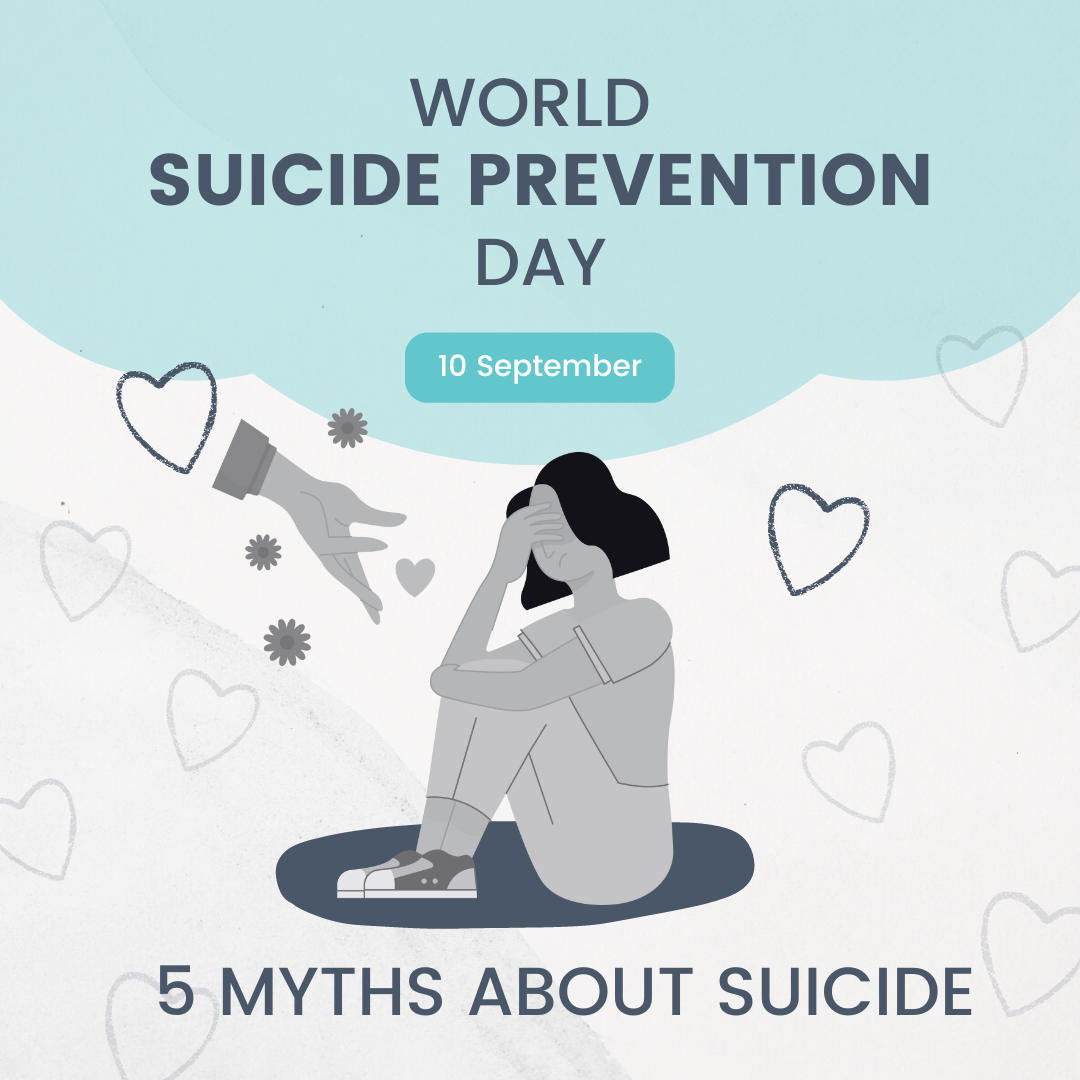This article is shared from SANE and was originally posted here.
While suicide awareness and prevention has come a long way over the past decade, many myths still exist. As well as being incorrect, theses myths can stop us recognizing when someone is at risk and in need of support. So here are five common misconceptions and the facts you can use to bust these
myths.
Myth # 1: Talking about suicide might put the idea in their head
There’s no harm in asking. If anything, for someone who is thinking about suicide, talking about it can come as a great a relief, and help them feel less afraid and more in control. Avoiding or tiptoeing around the issue can be isolating and leave people feeling unheard. The best policy is to try and help someone talk openly about how they are feeling and encourage
them to seek help.
Myth #2: People who attempt suicide want to die
People who attempt suicide are often quite ambivalent about it. They may not really want to die – they may even be afraid of death – but see suicide as the only way to bring an end to their pain. Providing emotional support, helping them consider positive coping methods, can be helpful to someone who is feeling unsafe.
Myth #3: Suicidal behavior is manipulative or ‘attentionseeking’
Sometimes people may threaten or attempt suicide as a desperate plea to let others know they are not coping and need
help. They may not know how to tell others how they are feeling, they may think that no one cares, or that nobody can help them. However these actions may come across, they should never be treated as trivial or manipulative. All suicidal talk and behavior is serious and requires a compassionate and immediate response.
Myth #4: Most suicides happen unexpectedly
There are often warning signs prior to suicide. Some may be
obvious, talking about suicide or death. Others less so, such as
withdrawing from friends or family, or misusing alcohol and
drugs. People who are thinking about dying usually try to seek help. In fact, many people who attempt suicide visit a doctor in the months and weeks prior.
Myth #5: Suicide is a selfish act
Many people who attempt suicide feel they are a burden to others, and that their friends and family would be better off without them. While some people recognize that their death will cause their loved one’s pain, they may also believe they are
causing more pain by being alive and rationalize suicide as a way to protect those they care about.
If you are thinking about suicide, please reach out to one of the crisis services listed below. If you are worried about someone you can help by learning what signs to look out for, how to have a conversation about suicide and how to help them stay safe if they are feeling suicidal.
If you are in an emergency, or at immediate risk of harm to yourself or others, please contact emergency services on 988.

